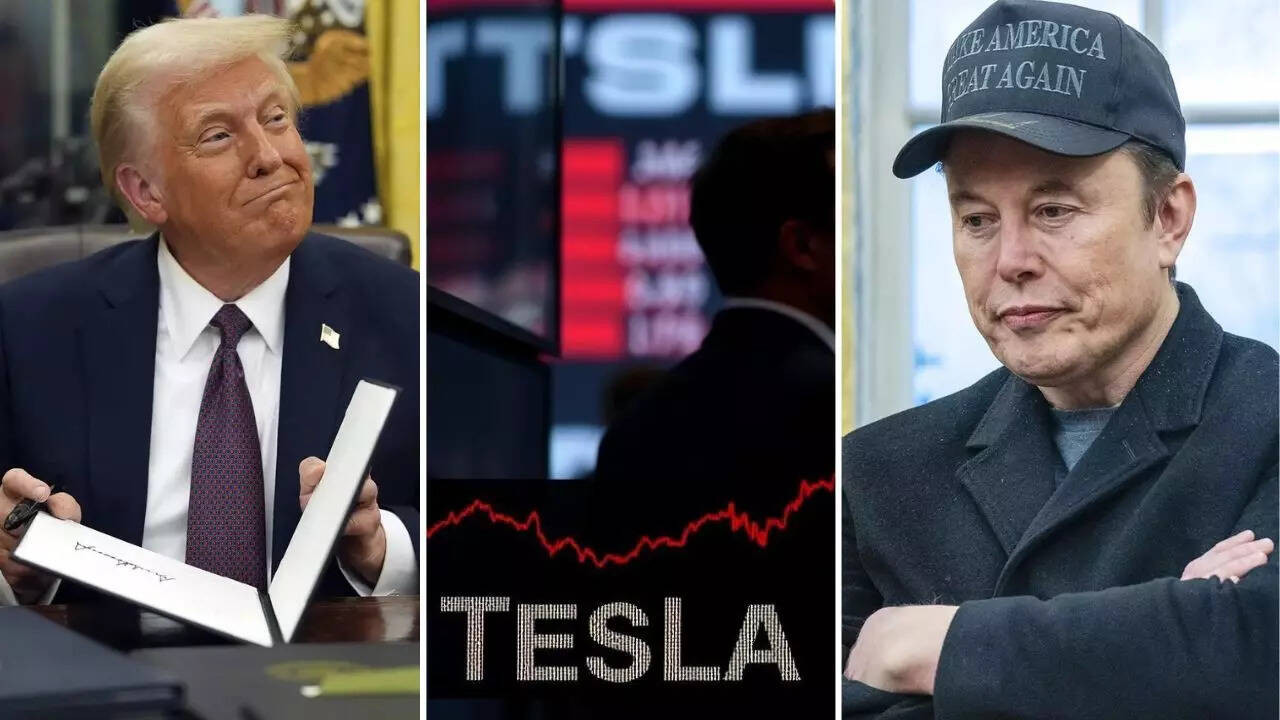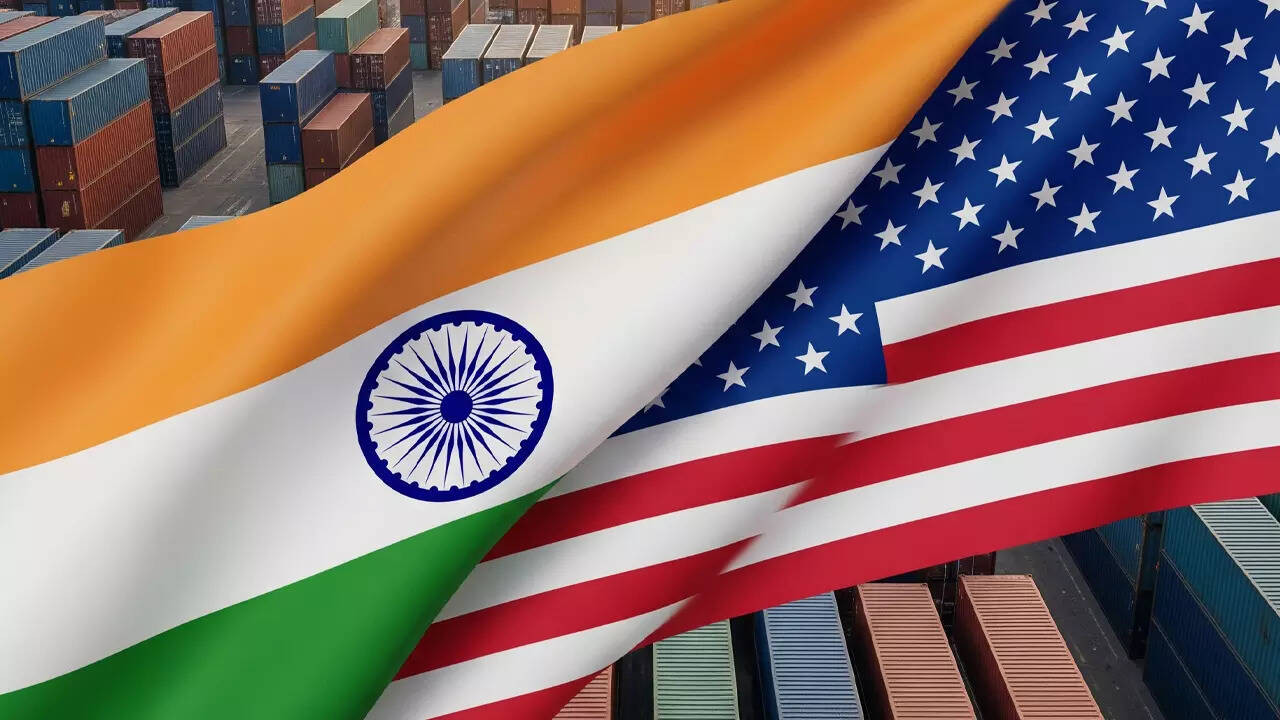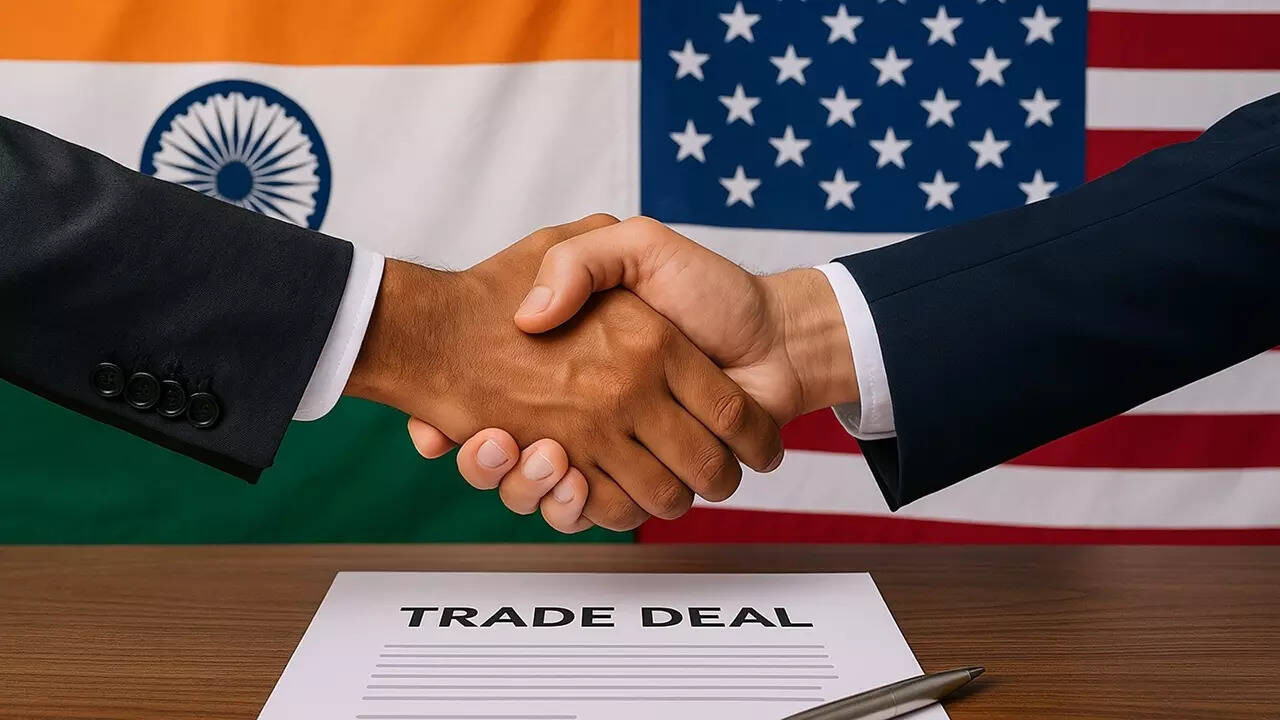A public feud between Trump and Musk triggered a significant drop in Tesla shares, impacting major US indexes like the S&P 500 and Nasdaq 100. Tesla’s decline highlighted concerns about index concentration in large-cap stocks, particularly the ‘Magnificent Seven,’ and its wide market exposure through numerous ETFs, affecting funds like the Consumer Discretionary Select Sector SPDR Fund.
Musk vs. Trump: When Billionaire Beef Knocks Over Wall Street’s Milk
Okay, let’s be honest. We all love a good drama. But when that drama involves two titans like Elon Musk and Donald Trump, and the fallout starts impacting your 401k? That’s when things get real interesting. And maybe a little nerve-wracking.
This past week, the simmering feud between these two larger-than-life personalities finally boiled over, and Wall Street felt the heat. It wasn’t just a Twitter spat relegated to the comment sections; it actually translated into noticeable tremors in the market, specifically taking a bite out of Tesla’s stock.
Now, you might be thinking, “So what? Two guys with egos the size of Texas duke it out. Why should I care?” Well, because Tesla isn’t just some niche electric car company anymore. It’s a bellwether. It’s a symbol of innovation, a poster child for disruptive technology, and a significant component of major market indexes. So, when Tesla sneezes, the market catches a cold.
The catalyst? Well, it’s hard to pinpoint one definitive thing with these two. It’s more of a slow burn of political and personal differences that finally ignited. Trump, never one to shy away from a jab, has been publicly critical of Musk, particularly regarding his ventures beyond Tesla and his perceived reluctance to fully embrace the former president’s political ideologies. Musk, in turn, hasn’t held back on his own critiques, often delivered with his characteristic bluntness. The recent escalation included… well, let’s just say it wasn’t a pillow fight.
The immediate consequence was a dip in Tesla’s share price. Now, Tesla’s stock is known for its volatility – it can swing wildly based on anything from production numbers to Musk’s latest tweet. But this felt different. This felt like a crisis of confidence, fueled not just by market fundamentals, but by the very public spectacle of two influential figures going head-to-head.
But here’s where things get a bit more nuanced. The Tesla dip wasn’t happening in a vacuum. The market was already jittery. Inflation worries are still lingering, interest rates are stubbornly high, and there’s a general sense of uncertainty hanging in the air. The Musk-Trump clash just acted as a spark in a dry forest, accelerating a correction that might have been brewing anyway.
Think of it like this: imagine you’re on a boat that’s already rocking slightly. Then, two people start wrestling on deck. The existing instability just gets amplified, right?
And that’s precisely what happened. The Tesla slide contributed to a broader downturn, impacting major indexes and leaving investors feeling a little seasick. The whole episode exposed a certain fragility in the market, a vulnerability to external shocks that goes beyond just economic indicators.
This also begs the question: how much does personality really matter in the market? We know CEOs and public figures have influence, but can a personal feud actually move billions of dollars? In this case, it certainly seems so. It highlights the increasingly blurred lines between business, politics, and social media, and the outsized impact of individual personalities in a world saturated with information and interconnectedness.
So, what’s the takeaway?
Firstly, diversification is always your friend. Don’t put all your eggs in one basket, especially if that basket is heavily reliant on the whims of a few outspoken individuals. Secondly, remember that market volatility is normal. Dips happen. Corrections are part of the cycle. Don’t panic sell based on headlines.
Finally, and perhaps most importantly, it’s a stark reminder of the power of perception. The market isn’t always rational. It’s driven by emotions, by sentiment, and by narratives. And when those narratives are shaped by high-profile clashes, the consequences can be felt by everyone, even those who aren’t actively following the latest billionaire squabble.
Whether this is a temporary blip or a sign of deeper cracks in the market remains to unfold. The market has a way of rebounding, of adapting to new realities. But this episode serves as a potent reminder that the forces shaping our financial landscape are complex, unpredictable, and often, surprisingly personal. Maybe it’s time to pour a cup of coffee, watch the news… and maybe adjust your portfolio just a little. Just in case.
📬 Stay informed — follow us for more insightful updates!







